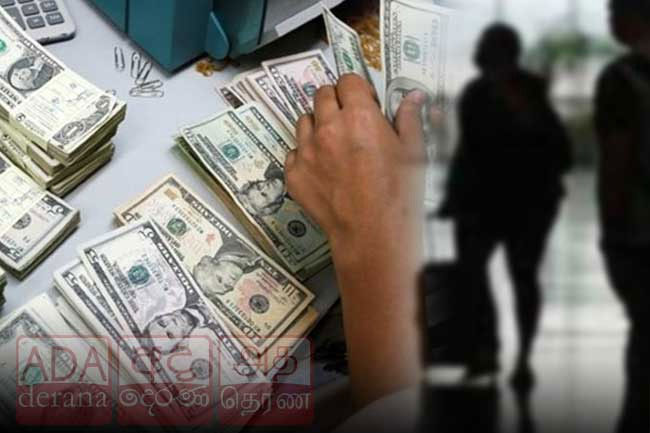
If you drive for about an hour south of Taipei, you’ll stumble upon one of the most important plots of land for the global economy. Massive buildings dot the 1,400 hectare-Hsinchu Science Park, featuring logos of the world’s biggest and most advanced chipmakers: Taiwan Semiconductor Manufacturing Company, United Microelectronics Corporation, MediaTek. They’re just a handful of the approximately 500 tech companies that call the Park home.
Back in the 1980s, Taiwan’s government wanted to establish a zone that specialized in manufacturing and research and development for the tech industry. The Hsinchu Science Park started off as a hub for PC production, with the government dangling carrots such as tax and land incentives to entice companies to set up shop there. But a decade later, the science park shifted to become something else: The place for high-end semiconductor production.
“This park has been at the center of Taiwan’s efforts to first build the technological capacity to have a chief industry, to second train the workforce that the industry requires, and third incubate most of the key firms that have emerged in Taiwan,” Chris Miller, author of Chip War: The Fight for the World’s Most Critical Technology, says. “It’s a really interesting and successful mix of education and training programmes where it’s easy for firms to get established, and find partners and skilled workers.”
Taiwanese companies, like those based in Hsinchu, have a tight grip on the world’s semiconductor industry. Chip making companies like TSMC and UMC now count Apple, Nvidia, and Qualcomm as customers.
Other governments are now trying to emulate that success. Both the U.S. and Japan, one-time chip powerhouses, now offer billions of dollars in subsidies for domestic chip manufacturing, whether in Arizona, Ohio, or Japan’s Kumamoto Prefecture.
Home to the biggest chip players
Drive around Hsinchu Science Park, and you’ll see the biggest names in chipmaking.
There’s Taiwan Semiconductor Manufacturing Company (TSMC), the world’s leading manufacturer of advanced chips and Asia’s most valuable company.
There’s United Microelectronics Corporation (UMC), Taiwan’s first semiconductor company and one of the world’s top contract chipmakers.
And there’s MediaTek, a market-leading fabless semiconductor company that designs chips for mobile devices and home entertainment systems.
“If not for the science parks that offer all the infrastructure and land, a lot of tech companies may not be possible today,” Morris Chang, founder of TSMC, said at an event marking the 40th anniversary of the Park in December 2020.
Training is also key to the Park’s success. It’s close to industry-focused institutions like the Industrial Technology Research Institute or academic ones like the National Tsinghua University.
From ‘graveyard’ to tech hub
The Hsinchu Park now makes up a sizable part of Taiwan’s economy. Integrated circuit companies reported 11.3 trillion New Taiwan dollars ($363 billion) in revenue in 2022, over 75% of the total amount generated by the Park’s 500-plus companies. (By comparison, Taiwan’s total GDP in 2022 was around $720 billion).
It took a while to get there.
The Park is known colloquially as “chu-ker,” an abbreviated form of “Hsinchu Science Park” in Mandarin Chinese. But those who worked there called it something else: “monga-bo,” or graveyard in Taiwanese slang.
“If you look back 20 years ago, there were no shopping malls, no cinemas. There was nothing there,” says Lucy Chen, vice-president of marketing at Isaiah Research, a Taipei-based tech consultancy.
Chen started working in the semiconductor industry after getting her Master’s degree in 1996, much of it at Lam Research, a U.S. wafer fabrication company. She spent two decades at Hsinchu Science Park, starting in the late 1990s. Even then, she remembered seeing farmers on her way to work.
She notes that having a lot of chip companies so close to each other was an asset. “Every second is money in manufacturing. If you lost the time you lost the money,” Chen says.
Foundries would need to have support companies close by so repairs could be made at a moment’s notice. A lack of transport infrastructure meant that companies, suppliers and other companies in the chip ecosystem all had to be in the same location.
Other governments are trying to create their own semiconductor areas: the U.S., mainland Chinese and Japanese governments, just to name a few, are investing heavily in domestic semiconductor manufacturing. Taiwan’s government is also trying to replicate the industrial park model across the island; TSMC’s latest investments in leading-edge chip manufacturing are in the central and southern parts of the island.
But Hsinchu remains the center of Taiwan’s—and the world’s—chip industry.
“Success breeds success,” Miller says. “The bigger the ecosystem, the deeper the ecosystem, the easier it is for companies to succeed.”
Fortune is hosting the inaugural Fortune Innovation Forum in Hong Kong on March 27–28. Experts, investors, and leaders of the world’s largest companies will come together to discuss “New Strategies for Growth,” or how companies can best seize opportunities in a fast-changing world.












